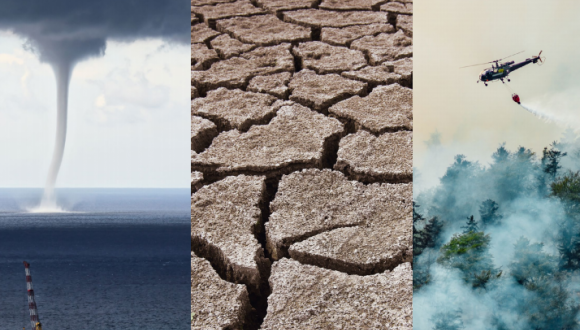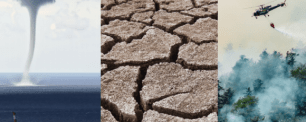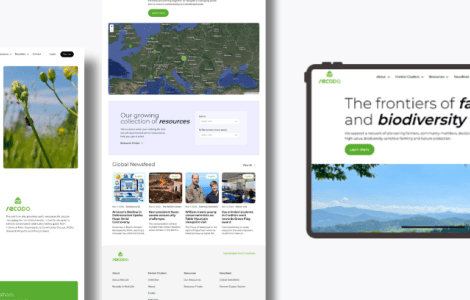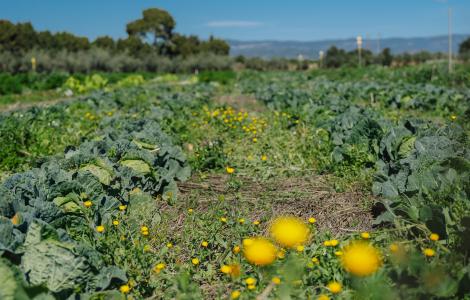CREAF collaborates on the first summary of the future MedeCC report, the assessment of the impacts and risks of climate and environmental change in the Mediterranean
Since 2015, the Medecc network, with more than 80 scientists from all over the Euro-Mediterranean region, has been producing this pioneering and innovative report which is the largest scientific assessment of climate and environmental change at regional level in the Mediterranean.

This first report is independent, the production has already gone beyond the preparation of the scientific report and has now presented the Summary for Policy-Makers. The report provides, for the first time, comprehensive scientific information on the risks of climate change in the Mediterranean region. Rising temperatures and sea levels, water and food shortages and more large-scale migrations These are some of the perspectives presented by the forecasts on the effects of global warming in the Mediterranean region. The report notes that the average temperature in the Mediterranean region has increased by approximately 1.5°C since pre-industrial times. This means that the Mediterranean has warmed up 20% faster than the world average. Without appropriate measures, by 2040 the increase will be 2.2°C, and in some regions it will exceed 3.8°C by 2100.
There will be more significant and longer-lasting heat waves and more frequent extreme droughts.
This summary has yet to be reviewed and adopted by government representatives (including members of the Union for the Mediterranean's Expert Group on Climate and Environmental Change) and finally published and disseminated (in English, French and Arabic). The preparation of the final report, which began at the end of 2016 and is expected to be published soon, responds to one of the objectives of the Mediterranean Strategy for Sustainable Development 2016-2025, recommending the creation of knowledge transfer mechanisms between the scientific community and public decision makers in order to prepare rigorous scientific assessments of trends and impacts of climate change, as well as to analyze options for mitigation and adaptation to the effects of this phenomenon.
The report is the result of a voluntary effort by 71 experts from around the world, selected through an open and transparent process. These experts come from 15 different states, 28 of them (39% of the total) from southern and eastern Mediterranean countries. Therefore, in Catalonia, we have the participation of Dr. Lluís Brotons (CREAF), Dr. Enrique Doblas-Miranda (CREAF), Dr. Maria del Carmen Llasat Botija (CADS and University of Barcelona), Dr. Alejandra Morán Ordóñez (CREAF - CTFC -Solsona), Mr. Arnau Queralt i Bassa (CADS), Dr. Robert Savé Montserrat (IRTA), Dr. César Terrero (UAB), Dr. Sergio Tirado Herrero (UAB) and Dr. Patrizia Ziveri (ICTA-UAB).
The MedECC is composed of 450 researchers from 35 different states around the world. Its main objective is to identify and synthesize existing scientific knowledge on the current state and future risks of climate and environmental change in the Mediterranean and transfer it to public decision makers throughout this geographical area, which is particularly vulnerable according to international reference institutions such as the Intergovernmental Panel on Climate Change (IPCC) and the Intergovernmental Panel on Biodiversity and Ecosystem Services (IPBES).
MedECC is supported by the Government of Catalonia, through CADS, Plan Bleu (Regional Activity Centre of the United Nations Mediterranean Action Programme), the Swedish Agency for Development Cooperation, the Union for the Mediterranean, the Government of the Principality of Monaco, the French Agency for the Environment and Energy, and the government of the Southern Region of Provence-Alpes-Côte d'Azur, Métropole Aix-Marseille Provence, the University of Aix-Marseille, the Institut de Recherche pour le Développement (IRD), the Association pour l'Innovation te la Recherche ave service du climat (France), the Regional Climate Expert Group of the South Provence-Alpes-Côte d'Azur region, the Mediterranean Integrated Studies at Regional And Local Scales (Mistral) programme and OT-Med LABEX.






